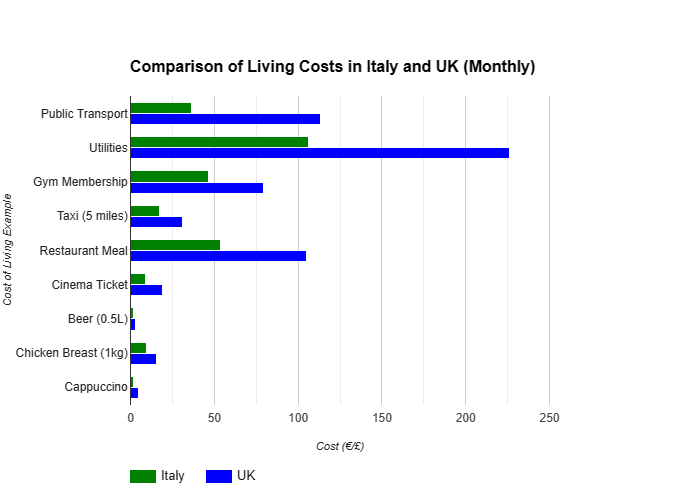Italy: the digital nomad visa we’ve been waiting for
Italy is offering a digital nomad visa specifically designed for remote workers, following a trend popularised by other European nations. Many freelancers have been waiting for Italy’s digital nomad visa programme to launch. But what are the entry and cost of living requirements?
Announced in March 2022 and launched in April 2024, this visa opens the door for freelancers and digital nomads to live and work in the beautiful country, known for its delicious food, rich history, and stunning scenery.
This news comes alongside continued interest in remote work opportunities across Europe. Countries like Portugal, Spain, Croatia, and Estonia have already established themselves as popular destinations for digital nomads. However, Spain’s “golden visa” programme, which grants residency to those who invest a significant sum of money in the country (i.e. EUR 500,000 in property), might be facing an end later in 2024.
Who can apply for Italy’s digital nomad visa?
According to Euronews, to be eligible for the Italian visa, applicants must meet several requirements. These include:
- A minimum annual income of at least €28,000 (roughly three times the minimum level to be exempt from healthcare costs in Italy).
- Valid health insurance covers the entire duration of their stay.
- Proof of remote employment status, such as a contract with a company outside of Italy or documentation demonstrating freelance work.
- Evidence of suitable accommodation in Italy.
- A clean criminal record certificate.
How to apply for Italy’s digital nomad visa
Those interested in applying for the visa will need to book an appointment at an Italian consulate in their home country. Required documents include a valid passport, proof of employment or contracts, proof of income, health insurance, and proof of accommodation in Italy.
If approved, visa holders will have eight days upon arrival in Italy to apply for a residence permit, allowing them to legally live and work in the country.
With Italy joining the ranks of digital nomad-friendly destinations, remote workers now have a wider range of options to choose from when considering a work-life balance with a European twist.
Cost of Living: UK v. Italy
It’s 27% less expensive to live in Italy compared to the UK, which is a significant difference. While some things in Italy are more expensive than in the UK, in general, it’s a cheaper country to live in, especially when you take into consideration its higher average wage.

*Data is taken from LivingCost.org.
 Be informed. Freelancer informed.
Be informed. Freelancer informed.
Get the latest news impacting freelancers every week.
Sign up for the Freelance Informer newsletter
Spread the word and the news!
Related articles
Competition among Spain’s freelancers heats up
New UAE corporate tax to impact freelancers
Freelancers and digital nomads reconsider long-term cruises following cancellation of epic voyage


